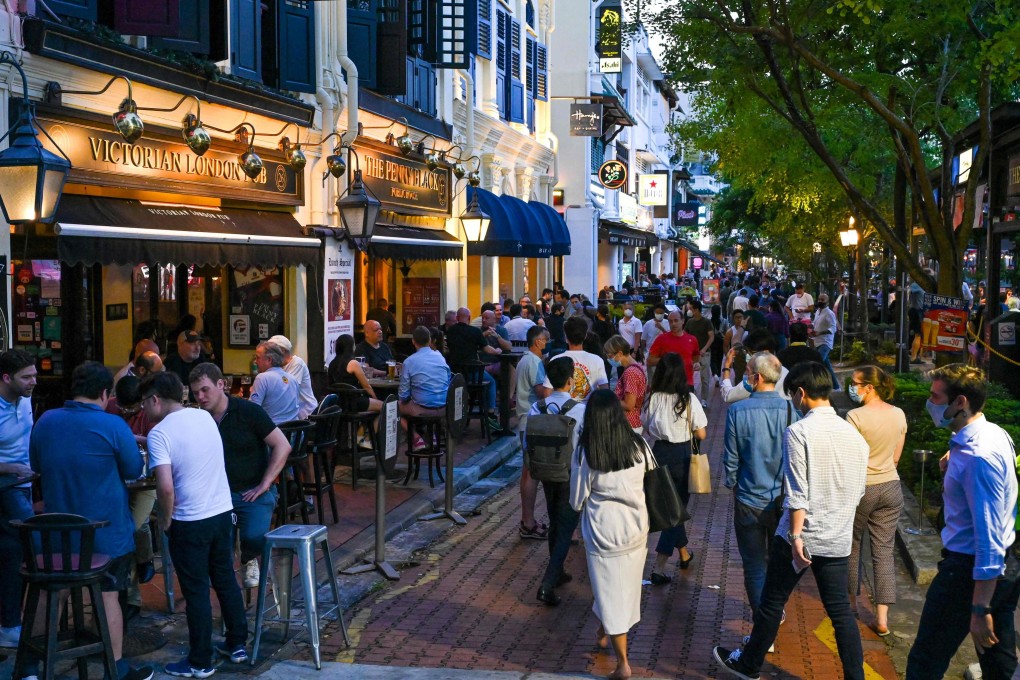Joy, free beer, parties: Singapore lifts Covid-era rules, but many will keep masks on outdoors
- Some residents counted down to midnight to welcome the lifting of outdoor masking, while restaurants have reported an increase in bookings now that groups of 10 are allowed to gather
- But even as Singaporeans cheer the easing of two years of harsh restrictions, many say they’ll still err on the side of caution in places with large crowds

Outdoor mask-wearing is now optional for the city of 5.45 million residents – something Lim said was an absolute treat given the city state’s sweltering heat.
“Wearing a mask outdoors in our hot and humid climate, when there are no crowds around me, is unnecessary as the risk of infection or transmission is close to zero,” said the 34-year-old, though he added he would continue to err on the side of caution and mask up in crowded areas.
From Tuesday, Singapore residents can also socialise in groups of 10 – up from five – while a ban on the serving and selling of alcoholic beverages after 10.30pm will be lifted. The city state is also set to simplify its border rules later this week to make international travel easier for those who are vaccinated, and is poised to fully reopen its border with Malaysia.
There was palpable excitement among Singaporeans and a sense of relief that life was finally looking more similar to pre-pandemic times. Some people held countdown parties and shared TikTok videos of themselves excitedly removing their masks outdoors after midnight struck. But others said they would keep their masks on as it was a hassle to have to put them back on when indoors.
Darren, a Singaporean who wished to be known by his first name, said he was particularly looking forward to the lifting of the alcohol rule. The 30-year-old will be spending his Tuesday night at a bar and staying beyond 10.30pm, to “fully utilise this new-found freedom”, he said.
